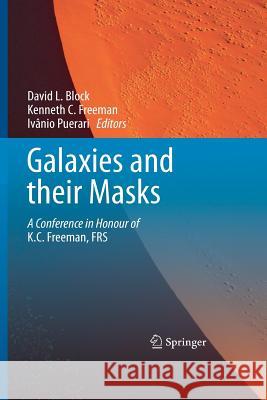Galaxies and Their Masks: A Conference in Honour of K.C. Freeman, FRS » książka
topmenu
Galaxies and Their Masks: A Conference in Honour of K.C. Freeman, FRS
ISBN-13: 9781493939701 / Angielski / Miękka / 2016 / 479 str.
Kategorie BISAC:
Wydawca:
Springer
Język:
Angielski
ISBN-13:
9781493939701
Rok wydania:
2016
Wydanie:
Softcover Repri
Ilość stron:
479
Waga:
0.71 kg
Wymiary:
23.39 x 15.6 x 2.64
Oprawa:
Miękka
Wolumenów:
01
Dodatkowe informacje:
Wydanie ilustrowane











